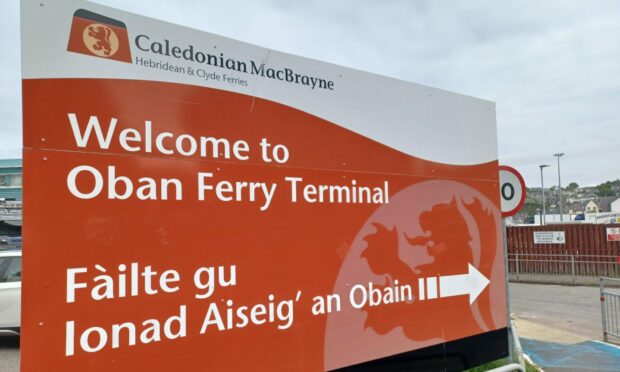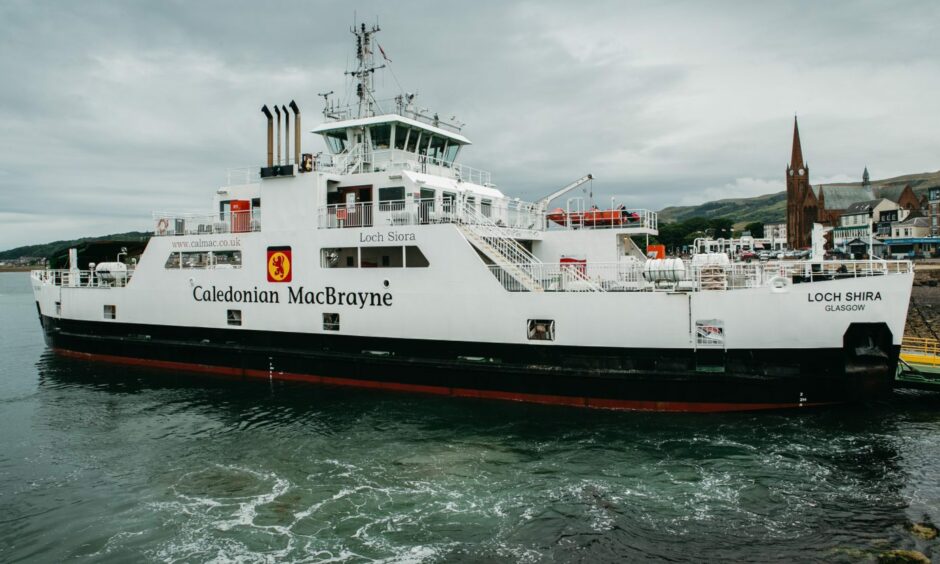Native names for boats and a language “toolkit” for learners are priorities in a new Gaelic plan for Scotland’s ferry network.
Caledonian Maritime Assets Ltd (CMAL) own much of Scotland’s ferry infrastructure, including boats and harbours.
Recently, they released the third update of their Gaelic Language Plan – a blueprint for how they will promote and support the language.
One such initiative states that CMAL will encourage all staff to participate in the toolkit once it is launched.
According to the Gaelic Language Plan report, many staff members are interested in learning Gaelic to ‘at least a basic level’.
‘I started learning – now I’m hooked’
Chris Fisher is a Business Support Officer at CMAL. As part of his role, he manages the company’s website and social media channels.
As a dual-language website, this means he is responsible for updating the site’s content – both in English and in Gaelic.
He was also involved in publishing the latest version of CMAL’s Gaelic Language Plan.
Chris says: “After a particularly busy week of web updates, I thought about how much easier the week could have been for me if I had known some basic Gaelic.”
Tha na bhòtaichean air an cunntadh a-nis agus faodar ainm an dà aiseig airson Ìle fhoillseachadh. Fàilte air an "Isle of Islay" (Eilean Ìle) agus an "Loch Indaal" (Loch an Dàil)! Taing dhuibh uile a ghabh pàirt sa bhòt, a-mach à 1300 bhòt iomlan. ➡️ https://t.co/y20gyJlIM2
— CMAL (@CMAssets) May 18, 2023
Chris started learning from that very day, and he says he has been “hooked ever since”.
Through the toolkit, which is supported by Bord na Gaidhlig, staff will have free access to learning resources.
The toolkit will have videos, written translations and audio clips to help teach staff the basics. This includes describing food, drink and the weather.
It will also teach practical applications which will be useful for CMAL staff.
“Like describing different parts of a ship” says Chris, “and phrases you can use around the office, on the phone, or at reception.”
Delivery is ‘crucial’
CMAL Chair Morag McNeill says the initiatives will help to ensure Gaelic has a ‘sustainable future in Scotland’.
Ms NcNeill says: “We recognise that the Gaelic language is an integral part of Scotland’s heritage, national identity, and cultural life.”
“If Gaelic is to be revitalised as a living language in Scotland, we must all make a concerted effort to promote, enhance and encourage its increased use.”
Calum Munro is an independent iouncillor for Skye, and chair of the Gaelic committee.
Mr Munro says he is pleased to see another public body publishing a new iteration of their Gaelic Language Plan.
“CMAL serves almost all the remaining key Gaelic communities, and it’s important that their plan reflects the areas they serve.”
“Producing a plan is the first step, but it is the delivery that is crucial,” says Mr Munro.
“Especially in terms of Gaelic usage with community members, staff acquiring and using the language, and giving increased visibility and status to the language across their operations.”


Conversation